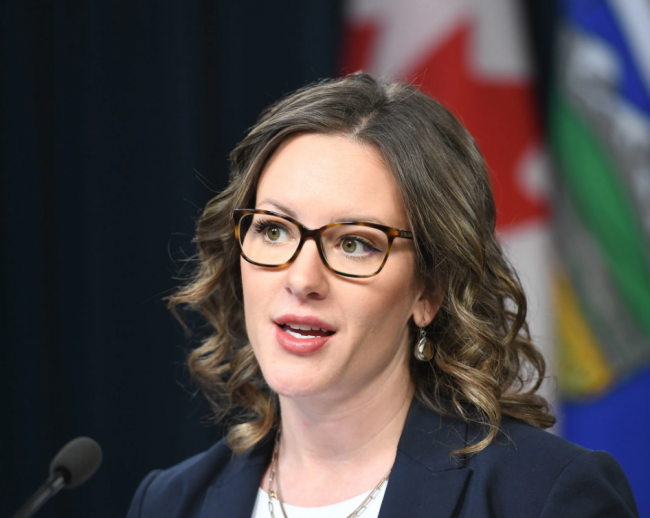Articles Menu

Feb. 16, 2024
The federal government’s ideas to make major electricity regulations more flexible and responsive to provincial and industry concerns did not win over Alberta.
“This report makes no meaningful corrections to the most destructive piece of Canadian electricity regulation in decades,” said Environment Minister Rebecca Schulz in an emailed statement to Canada’s National Observer.
Most of the possible changes respond to concerns raised by provincial governments and industry during the six-month consultation period on the draft regulations published in August 2023. Some environmental groups and MPs say the potential changes could weaken the draft regulations by opening the door to greenhouse gas (GHG) offsets and giving more runway before the rules apply to new generators, among other things.
In his Feb. 16 announcement, Environment Minister Steven Guilbeault said the “improvements under consideration” would give provincial operators more flexibility and still align with Canada’s goals to reduce planet-warming greenhouse gas emissions.
The Clean Electricity Regulations aim to decarbonize the country’s electricity grid by 2035 by requiring electricity systems across the country to bring all planet-warming greenhouse gas emissions down to zero, with some exceptions.
Provincial governments, particularly Alberta and Saskatchewan, have opposed the regulations at every stage, calling them “unrealistic” and “unconstitutional.”
NDP Environment critic Laurel Collins said many of the changes would “water down” this “critical climate policy.”
“Allowing emission limits to be exceeded by using offsets is a big concern,” as is extending a temporary exemption for fossil fuel plants built after 2025, said Collins in an interview with Canada’s National Observer.
“Some of the concern also comes from the fact that today’s announcement lacks some key details,” she added. “If we want to evaluate the strength of these regulations, we need to make sure we're clear about what they're talking about when it comes to those extensions … and stringency of emissions-intensity standards,” said Collins. We also need reassurance that these new considerations won’t be used to further delay the final regulations, she added.
Feds tweak energy regulations for provincial flexibility but #Alberta is still not happy. #CleanEnergy #electricity #cdnpoli - Twitter
Details of the possible design changes are not specified, for the most part. For example, offsets would only be allowed to cover a portion of a facility’s excess GHG emissions, but it doesn’t say how much that would be.
“Clean electricity is the backbone of the energy transition,” said Scott MacDougall, electricity director at the Pembina Institute, an Alberta-based think tank. “This is a big [regulation]. It's important. It's complicated. It impacts a lot of people,” he told Canada’s National Observer in an interview.
He said it's good to see the federal government “working hard to get it right” but will be concerned if the regulations aren’t implemented by mid-2024, as originally promised.
The possibility of allowing unabated gas-fired generators to come online after the previous cutoff date of Jan. 31, 2025 risks locking in gas emissions and higher electricity costs for decades, warned MacDougall and Keith Brooks, programs director at Environmental Defence.
One of the main changes under consideration would set an annual emissions limit based on the size of each generation unit. The original approach planned to limit the emissions produced per unit of electricity.
The “devil will be in the details” said MacDougall. At this point, it's hard to assess the impact of some of the possible changes, he said. For example, the federal government is considering extending the length of time that gas plants can operate without complying with the regulations, but no range is given for how significant the extension could be.
The draft regulations currently only apply to generators with at least 25-megawatt capacity, which could incentivize companies to create more small generators that are exempt from the regulations, some stakeholders noted. To fix this, the federal government is proposing the capacity of all generators at one facility be added together to remove that incentive.
[Top photo: Alberta's Environment and Protected Areas Minister Rebecca Schulz at a news conference on Nov. 28, 2023. Photo by Chris Schwarz/Government of Alberta]